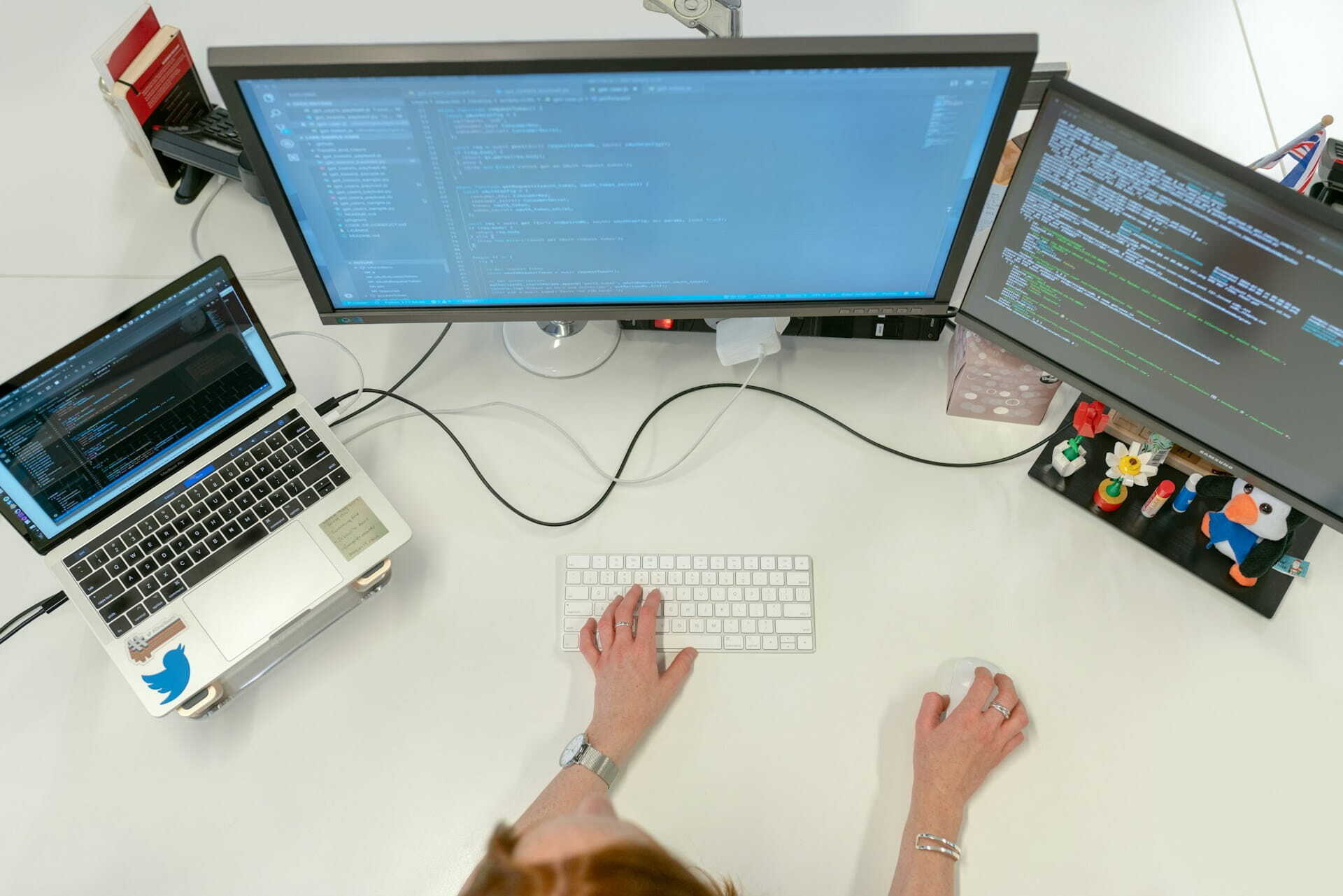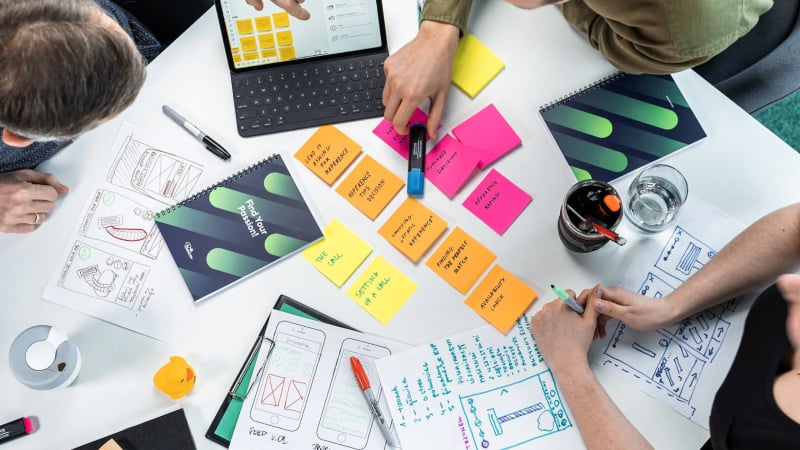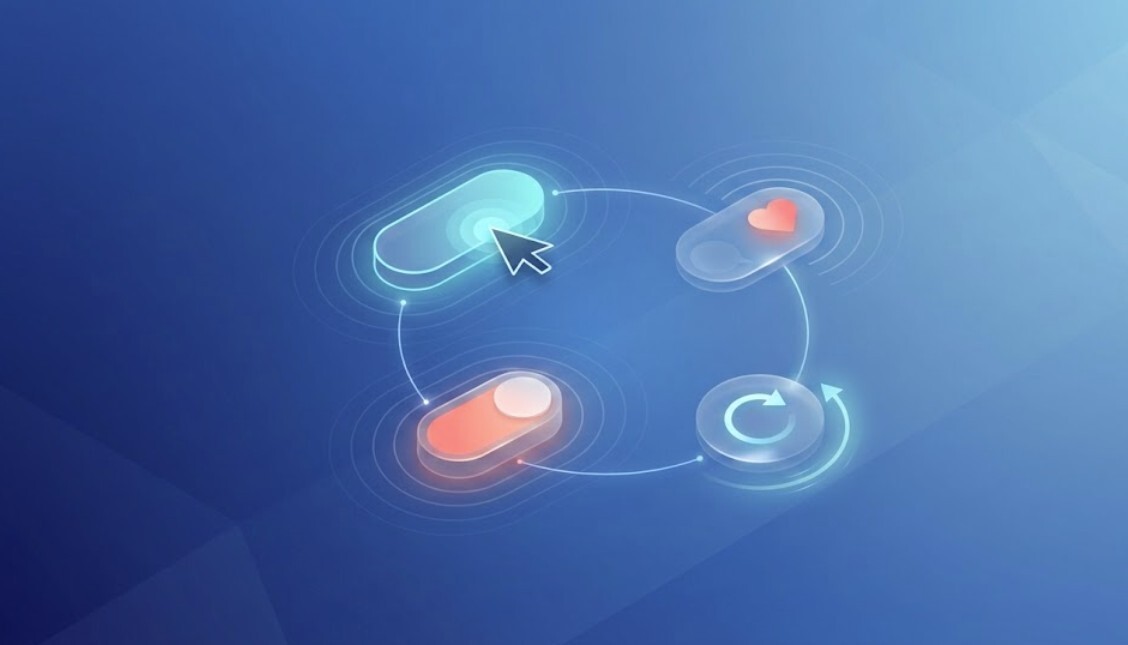30 November 2021 (updated: 25 July 2024)
7 Healthcare and Medical Mobile Apps We Still Need (Updated)
Chapters
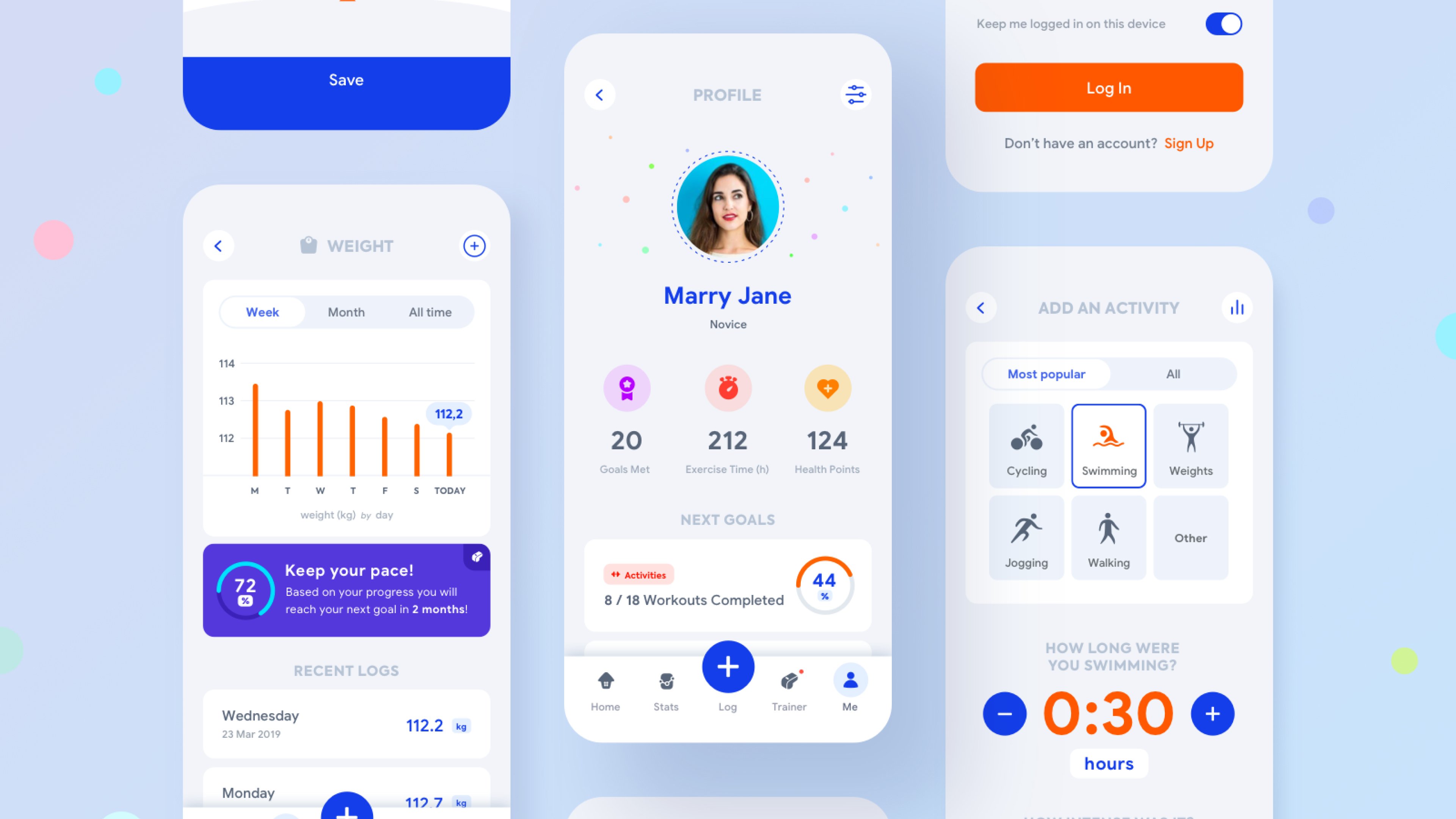
Social distancing employed almost overnight in the majority of the world only reinforced the urgent need for healthcare app ideas & medical app development.
The healthcare apps market was predicted to grow even before the COVID-19 crisis and was forecasted to reach USD 213.6 billion by 2025.
Digital has a real potential to improve healthcare systems and patient care on various levels: from patient-doctor communication & doctor-doctor knowledge sharing and networking, through eliminating hospital and medical center paperwork, up to taking care of such mundanes as health reminders.
The possibilities are endless and, because of the current crisis, governments are looking kindly on innovation, and investors are actively searching for new health initiatives. See 7 ideas for healthcare app development in 2024.
Doctor-on-demand & telemedicine services
The necessity for wide adoption of telemedicine is a fact. Before COVID-19, research suggested that patients prefer face-to-face contact to remote consultations. But when the pandemic was at its peak, telemedicine-based services noticed a demand increase of around 30%.
Coronavirus acted as a very much-needed catalyst for healthcare stakeholders: from patients and doctors, getting familiar and fond of the new options, to big healthcare organizations seeing it as a great opportunity to optimize and boost their efficiency.
Telemedicine is not only a comfort for patients and doctors, but it also saves time and reduces commute costs. It is also a step towards better safety precautions for all.
There are a couple of successful tools on the market: Doctor on Demand, Amwell, or Docplanner. But there's still room for improvement and space on the market for new comprehensive solutions. We're talking tools for scheduling regular online doctor appointments, and doctor-on-demand emergency consultations. These have to be apps that enable in-app video conferencing, swift file transfer, and payments all in one place. COVID-19 triggered medical centers to implement some guerrilla and ASAP-ready solutions (mobile calls, Skype or Zoom calls), but they will soon search for more stable options to integrate with their systems.
These telemedicine services also provide a crucial link between patients and healthcare providers, ensuring timely and effective medical consultations. Telemedicine is not only a comfort for patients and doctors, as it saves time and commute costs. It is also a step towards better safety precautions for all.
AI-based self-diagnosis apps
BUPA research showed that almost 50% of patients using search engines to self-diagnose see the result “cancer” at least once on the first page of their results.
Al possibilities are growing and are a glimmer of hope for healthcare in the unfair fight against unreliable self-diagnosing by “Dr. Google” and medical fake news circulating online.
AI-powered healthcare apps like symptom checkers or chatbots have the chance to empower patients with relevant knowledge based on reliably aggregated information.
Only in the U.S., 12 million adults seeking medical care are being misdiagnosed every year. AI can also support doctors and medical practitioners in gathering valuable data on non-specific symptoms and hence contribute to research and even better medical assessment. No doctor can have substantial knowledge of all diseases circulating around, and this is where AI can come in handy, and contribute to giving the right diagnosis.
When partnered up with relevant healthcare organizations and clinics, symptom checkers can transform into pocket-smart health assistants enhancing and altering the whole patient experience. Since partnerships with local healthcare institutions here appear crucial, it is unlikely that one solution will monopolize the market, there’s room to grow and market penetration.
Medical record apps
Patients seek solutions to collect all of their medical data, tests, and doctor visits in one place. A medical record mobile app is able to meet that need and replace paper records, or various systems that hold only bits and pieces of one's medical history.
The goal is to provide a solution that is able to aggregate all tests, visits and checkups in one place, and possibly at a later stage of development, to be able to compare the results over time (learn more about dividing the app's development scope).
Healthcare organizations, medical centers, and hospitals need tools to help and guide them throughout the digital transformation, and they might be interested in implementing the solution and integrating it with their system, as it would lower the costs of developing their own solution from scratch.
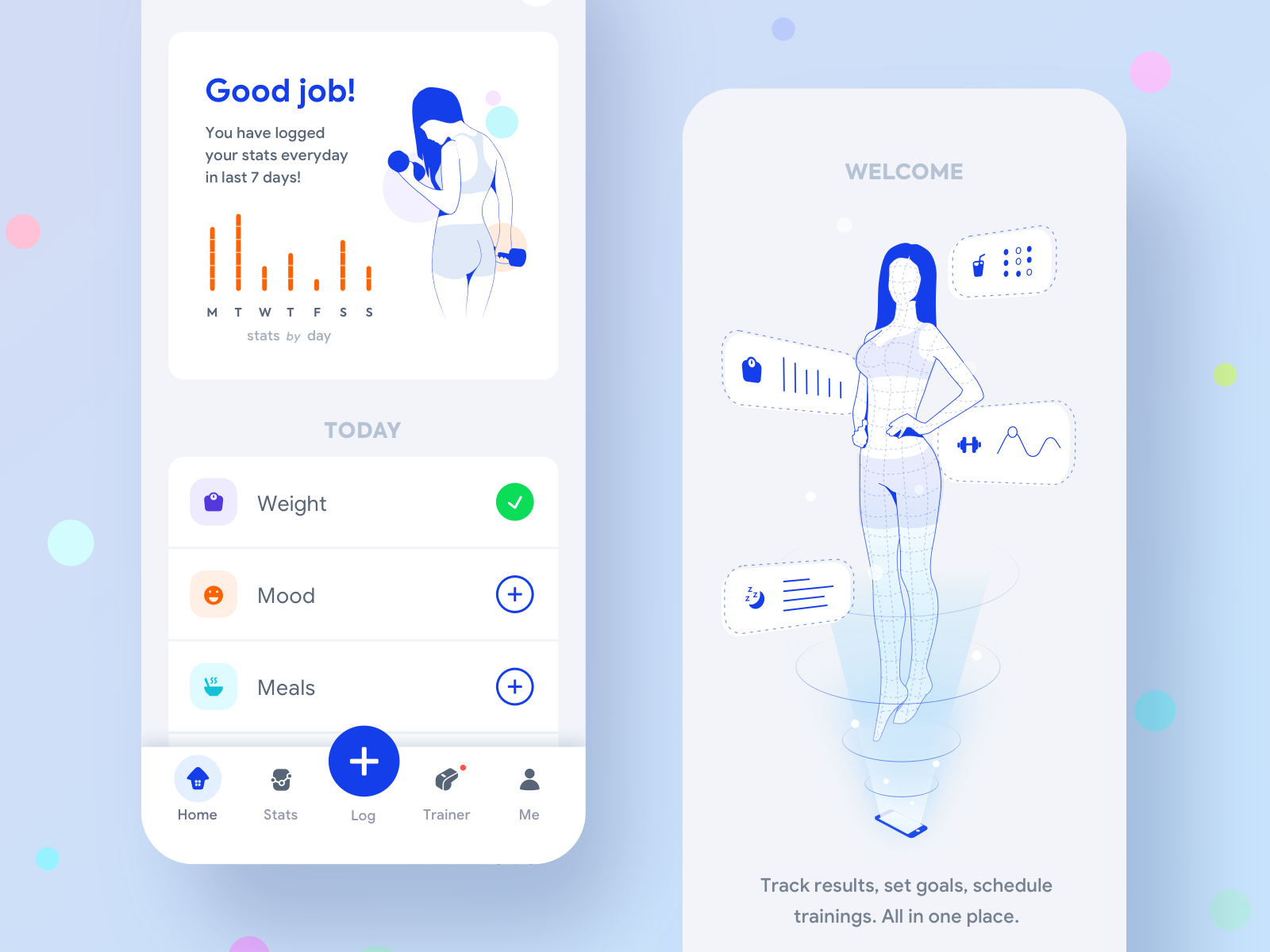 A concept of a fitness companion app. See more on our Dribbble.
A concept of a fitness companion app. See more on our Dribbble.
Health reminders & remote patient management apps
There are already many management and reminders apps out there, so this one may not appear as a win at first sight. However, there are many people with chronic conditions, people recovering from surgery, elderly patients, basically patients that require constant monitoring of certain stats and regular checkups. This is a niche worth taking care of, and worth taking care of on both ends.
On a patient’s end: it could be a self-management app that would be helpful during a consultation with a doctor. But there’s a growing demand on the market for apps that would extend this to enable thorough doctor-patient communication. Such apps, when paired with wearable devices, could enable seamless management of the patient’s results in real-time and would allow the system to notify a clinic/hospital when any abnormality is detected. Remote patient monitoring apps gather data about a patient at all times, enabling not only better monitoring but in many cases, allowing for faster and more accurate diagnosis of diseases that are difficult to detect in the early stages of development.
Remote patient monitoring could also aid women enabling them to track their menstrual cycle and both boosting natural fertility and further helping with infertility.
ePrescriptions and pharmacy delivery apps
ePharmacy aims at streamlining the process of medicine distribution on both ends. For consumers, ePharmacy apps mean convenient medication delivery at the comfort of their own home or through a smartphone. ePharmacy delivery apps fill the value chain gaps where the sick or those unable to go to a physical pharmacy struggle to get their medication regularly.
Integrated systems offer much better luck and range, getting the specific drugs that are hard to find by consumers who are very often left to themselves.
ePrescriptions are tightly connected to meds delivery apps. This kind of software should not only store patients’ data, but also be easily integrated within the hospital and doctors’ systems, and alert the doctor of potential medication conflicts.
On some markets, (although it very much depends on government regulations and specific 3-prescription advancement), it is possible to complement the two services into one and enable patients to store their prescriptions and deliver the meds within one platform.
- Learn more about Capsule, an American ePharmacy startup enabling meds delivery, featured in our article about top grossing NYC startups.
Mental health apps for addressing mental health issues
Taking care of your mental health has become the silver lining of the pandemic, and the development of mental health applications has surged. Lockdowns and the overall lack of social interaction started the very important, but long overdue conversation about our well-being. Digital possesses an enormous potential not only to make mental health help accessible for many more people but can also build up societal acceptance around the concept of caring for oneself.
The topic of mental health apps is definitely wide, encompassing various mental health app features such as relaxation techniques, journaling, and complex anxiety and depression programs. We’re talking relaxation apps, journaling apps, etc, but also complex anxiety and depression programs as well as platforms enabling people to schedule their psychotherapy visits. Tele-psychotherapy is also a new trend, however, researchers and psychologists themselves are yet inconclusive about if the outcomes and effects might be comparable (many schools of psychology rely heavily on face-to-face contact).
We can definitely divide mental health apps between the ones for self-management, and the ones that aim at streamlining specialist and patient communication, addressing various mental health conditions. The first type very often utilizes the gains of modern psychotherapy like journaling, meditation, and breathing exercises. The other type often completes the psychotherapy process (courses & seminars with mental health professionals) and/or eases out the chores of finding a therapist and booking your visits.
The crucial element of building a mental health app in 2024 is not to forget about research, as these apps play a significant role in mental health treatment. In 2020, we witnessed a flood of mental health apps, but many will not prevail if they are not evidence-based solutions. The process of mental health app development involves creating user-friendly and evidence-based solutions to address various mental health issues. The main focus in developing a mental health app should be mending the gap between patients and mental health professionals, and empowering patients with knowledge and expertise that healthcare systems can support. Developing a mental health startup idea requires thorough research and a solid strategy to succeed in the competitive market.
Starting a mental health business involves understanding market trends and user needs to create impactful solutions. The main focus in developing a mental health app should be bridging the gap between patients and mental health professionals, and providing support for individuals with mental illness. Hiring experienced mental health app developers is crucial to ensure the app is well-crafted and effective. The main focus in developing a mental health app should be mending the gap between patients and mental health professionals, and empowering patients with knowledge and expertise that can be supported by healthcare systems.
The market is flooded with mental health apps, but only the top mental health apps that are evidence-based will prevail. Meditation apps are popular for their guided sessions and mindfulness practices. Mental disorder apps provide support for conditions like anxiety, depression, and bipolar disorder. Self-improvement apps like Calm and Headspace offer valuable resources for mental well-being. Mental health applications cater to a wide range of health concerns and offer various features to support users. These apps address different mental health issues, providing resources and support for users.
Health tracking apps
Health tracking apps comprise probably the widest and the most popular group of healthcare apps available for consumers. Health tracking may involve many areas of users’ lives: physical activity, and basic health data collection like heart rate, sleep rate, and weight loss. Often they are companion apps to wearables that help collect accurate data.
Indeed, there are many movement and physical activity trackers available for the public. However, these apps sometimes lack a unified purpose to make them attractive in the long-term for consumers and for doctors who may prescribe them as additional or preventive treatment.
Professional and well-researched health tracking apps are somewhat connected with remote patient management apps, as they aid in preventing and monitoring people’s health accurately.
Creating comprehensible solutions based on consultations with both: doctors and end-users is the go-to way to create a sustainable and widely used health-tracking app with a bright future. Mimicking or digitalizing a healthcare function is not enough of a strategy for 2024, always remember to look at the big picture and solve your users’ potential pain points.
There is room to grow and markets to penetrate with new health app ideas
No matter which direction you want to pursue, the idea is just the beginning, and you need a solid strategy for your digital product, backed up with research, a good budget, and interface choices.
The strategy phase and a thorough roadmap of your app (even if it’s an MVP) are crucial to establish your market presence. You can learn more about what steps to take in our article on how to build healthcare apps: How to Design & Develop a Healthcare App?
Check out also
- 4 Digital Health Trends: After the 2020 digital health innovation boom, we’re guiding you through the biggest health tech trends.


.webp)
